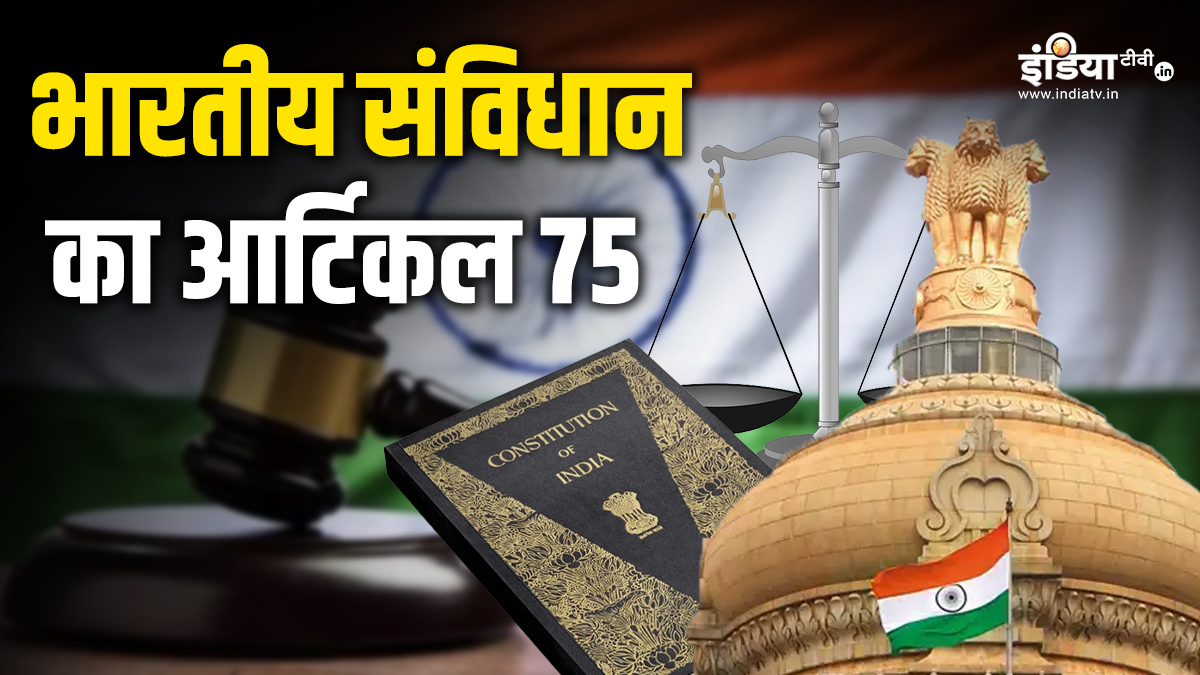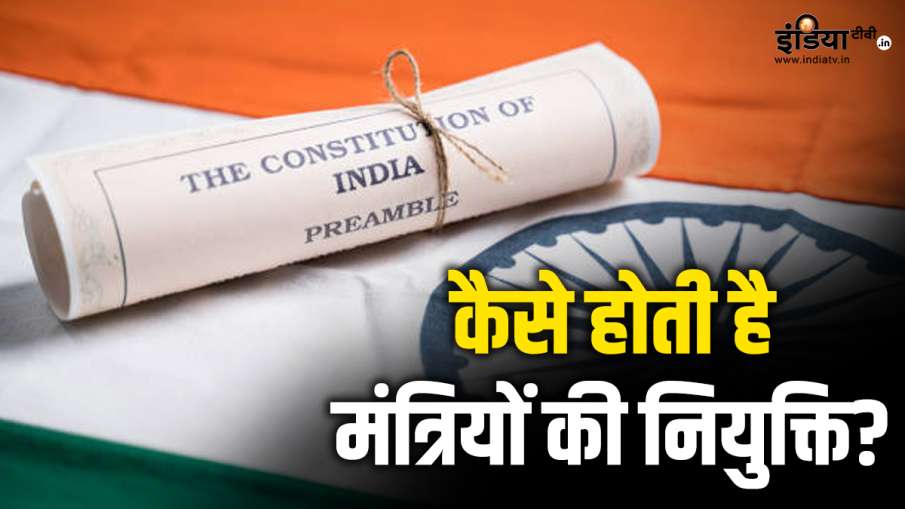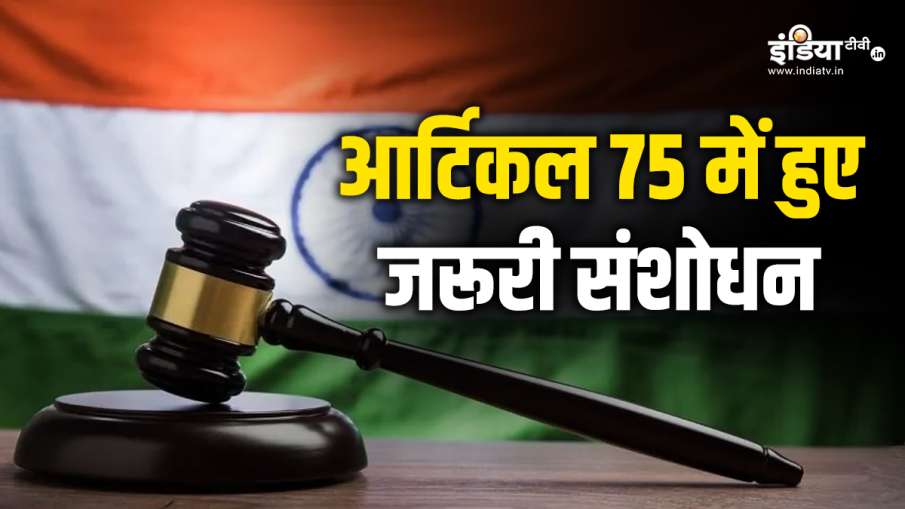Article 75 of Indian Constitution: Article 75 of the Indian Constitution lays the foundation of India’s parliamentary system, which gives information about the appointment of ministers, their tenure, responsibility and qualifications. This article explains how the Council of Ministers of India is formed and how it is accountable to the legislature (Parliament).
Prime Minister appointment
According to Article 75, the Prime Minister of India is appointed by the President. Practically the President usually appoints the person who has the support of the majority in the Lok Sabha. On the advice of the Prime Minister, the President also appoint other ministers, ensuring that the Prime Minister can work with the team of his choice.
Changes in Article 75
- The 91st Constitution Amendment Act, 2003 made a significant change in Article 75. Under this, Article 75 (1A) was added, in which it was provided that the total number of ministers including the Prime Minister in the Council of Ministers could not exceed 15% of the total number of members of the Lok Sabha. The purpose of this provision was to curb large cabinets and control the size of the government.
- Article 75 (1B) was also added under this amendment, which belongs to the team-flourish. If a member of Parliament is disqualified under the 10th Schedule (anti-party law), he would be disqualified from being appointed as a minister for that period until his disqualification ends or he is re-elected.
Information regarding ministers
Tenure of ministers
The office of ministers depends on the President’s will, as described in Article 75 (2). This means that the President can remove any minister from his post. However, the President in Assam takes this action only on the advice of the Prime Minister.
- Article 75 (3) establishes a fundamental principle of parliamentary democracy, in which the Council of Ministers will collectively responsible for the Lok Sabha. This provision means that all members of the Council of Ministers are jointly responsible for their decisions and policies. If the Lok Sabha passes a no -confidence motion against the Council of Ministers or rejects any government policy, the entire Council of Ministers has to resign.
Amendment to Article 75
Oath and qualification conditions
- He has to take oath of office and secrecy by the President under Article 75 (4) before assuming a ministerial position. This oath compels them to follow their duties and keep government secrets confidential.
- Article 75 (5) has an important condition regarding the merit of ministers, in which if a person is not a member of any House of Parliament (Lok Sabha or Rajya Sabha) for a period of six consecutive months, he will not remain a minister at the end of that period.
Salary and allowances of ministers
Article 75 (6) belongs to the salaries and allowances of ministers. It states that their salaries and allowances will be determined by the Parliament by making laws.




Leave a Comment